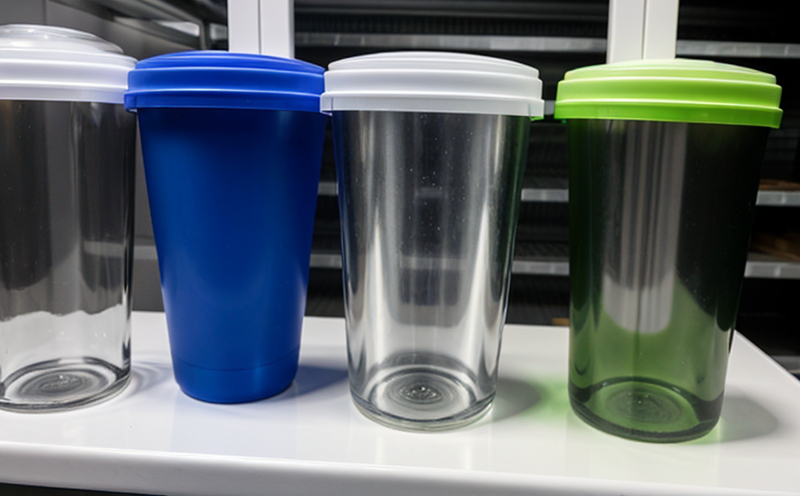ISO 720-6 Weight Uniformity Testing
The ISO 720 series of standards provides a comprehensive framework for quality assurance and control in glass packaging manufacturing. One crucial aspect covered by these guidelines is the weight uniformity testing, as specified in ISO 720-6. This test ensures that each individual piece of glass packaging meets strict weight requirements, which is vital for maintaining product integrity and consumer safety.
Weight uniformity testing aims to verify that each component of a glass container, such as bottles or jars, has consistent weight across its production batch. This consistency minimizes the risk of discrepancies in the final product's capacity and ensures accurate labeling. The test is particularly important for industries reliant on precise measurement, like pharmaceuticals, cosmetics, and food and beverage.
The testing process involves sampling a representative number of containers from the production run. Each container undergoes weighing to determine its weight relative to the specified standard deviation. Any container that deviates beyond acceptable limits is flagged for further inspection or reprocessing.
For accurate results, it's essential to adhere strictly to ISO 720-6 guidelines. The use of precision scales calibrated according to international standards ensures reliable data collection. Additionally, the environmental conditions during testing must be controlled to prevent external factors from affecting the accuracy of the measurements.
The importance of this test cannot be overstated, especially in industries where even minor variations can lead to significant issues. For instance, in pharmaceutical manufacturing, incorrect container weight could result in dosing errors, potentially leading to severe health consequences. In beverage packaging, inconsistent weights might cause product spillage or leakage.
| Aspect | Requirement |
|---|---|
| Number of Samples | A minimum of 10 samples per production batch. |
| Weighing Precision | Precision scales with a readability of ±0.1 g or better. |
| Temperature Control | Temperature should be maintained at 23°C ± 2°C during testing. |
The benefits of adhering to ISO 720-6 extend beyond ensuring product quality. It also contributes significantly to brand reputation and customer trust, as consumers increasingly demand products that meet the highest safety and quality standards.
Applied Standards
The ISO 720 series of standards is widely recognized for its robust framework in ensuring product quality across various industries. In particular, ISO 720-6 focuses on the weight uniformity testing of glass containers. This standard is complemented by other relevant international guidelines such as ASTM D1938 and EN 14583.
These standards provide a harmonized approach to quality control in glass packaging, ensuring that manufacturers adhere to consistent and stringent criteria globally. Compliance with ISO 720-6 not only simplifies the regulatory landscape for businesses but also enhances their reputation among international clients and partners.
The standard is particularly beneficial for companies operating across multiple regions, as it offers a common benchmark for quality assurance practices. This uniformity reduces the likelihood of discrepancies arising from regional variations in testing methods or criteria.
Industry Applications
- Pharmaceuticals: Ensuring accurate dosing and preventing contamination risks.
- Beverages: Maintaining consistent product quality and consumer satisfaction.
- Cosmetics: Guaranteeing precise ingredient measurements for safety and efficacy.
- Food & Beverage: Avoiding waste due to improper filling or labeling issues.
The following table highlights the specific scenarios where ISO 720-6 weight uniformity testing is particularly critical:
| Industry Sector | Critical Issues Addressed |
|---|---|
| Pharmaceuticals | Avoiding dosing errors and contamination risks. |
| Beverages | Maintaining consistent product quality and consumer satisfaction. |
| Cosmetics | Ensuring precise ingredient measurements for safety and efficacy. |
| Food & Beverage | Avoiding waste due to improper filling or labeling issues. |
Why Choose This Test?
The ISO 720-6 weight uniformity test is a cornerstone of quality assurance in the glass packaging industry. By ensuring that each container adheres to specified weight tolerances, this test minimizes risks associated with product discrepancies and enhances overall reliability.
For quality managers and compliance officers, adherence to ISO 720-6 demonstrates a commitment to maintaining high standards of manufacturing. This is crucial for building trust with customers and regulatory bodies alike. For R&D engineers and procurement professionals, the test provides valuable insights into process optimization and material selection.
The cost savings from preventing defects through early detection are substantial. By catching issues during production rather than after, companies can avoid costly rework and recalls. Moreover, consistent compliance with ISO 720-6 helps in streamlining supply chain processes and improving efficiency across the board.





